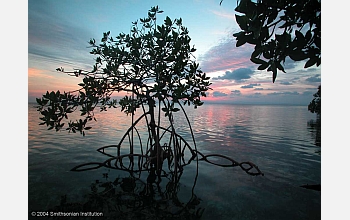|

Press Release 06-148
NSF Awards 17 Grants for Research on Biocomplexity in the Environment

October 17, 2006
To better understand the interrelationships among living things--from their genes to the ecosystems they inhabit and how they interact with their environment--the National Science Foundation (NSF) has awarded 17 grants to scientists and engineers across the country to study biocomplexity in the environment.
Twelve awards were made in 2006 for studies of the interplay between carbon and water in the earth system (CWES), and five for research on materials use: science, engineering and society (MUSES). CWES grantees were awarded a total of $24.8 million; MUSES grantees were awarded $6.3 million.
"CWES and MUSES represent the evolution of programs in the biocomplexity in the environment priority area," said Margaret Leinen, NSF assistant director for geosciences. "These programs continue to provide an opportunity for researchers who want to work on challenging interdisciplinary scientific problems. This research will provide us with a better understanding of natural processes and cycles, and of ways to use new technologies effectively in our environment."
Research on CWES and MUSES subjects, said Leinen, will shed light on connections that are not necessarily straightforward or easily discerned, but that are critically important to the future of life on our planet.
Organisms from microbes to humans make up the framework for these awards, as do environments that range from frozen polar regions to deep-ocean hydrothermal vents, from temperate forests to agricultural lands to the neighborhoods and industries of urban centers.
CWES awardees will work to find new ways of understanding the complex relationships between and within the global water and carbon cycles: carbon-climate interactions with increasing water demand; carbon stability in northern peatlands; the carbon balance of Lake Superior; the interaction of water, energy and carbon as a predictor of vegetation patterns in a changing environment; the role of fire in the global carbon and water cycles; and autonomous pH sensors and their contributions to carbon cycle research.
MUSES investigators will conduct research in such areas as: the connections among sustainable consumption, globalization, and information; materials flow-modeling for sustainable industrial systems for urban regions; infrastructure change and the environmental impacts of alternative fuels and vehicles; and the production and use of a novel bacterial protein in aquaculture operations.
Scientists and engineers will work in teams across diverse fields that include biology, physics, engineering, economics, geochemistry and others, said Leinen, and in scientific areas that extend from the molecular level to changes in the world's climate. "We now have the techniques and tools," she said, "to make that possible."
-NSF-

Media Contacts
Cheryl Dybas, NSF (703) 292-7734 cdybas@nsf.gov
Related Websites
CWES, MUSES '06 awards: http://www.nsf.gov/geo/ere/ereweb/fund-biocomplex.cfm

The National Science Foundation (NSF) is an independent federal agency that
supports fundamental research and education across all fields of science and
engineering, with an annual budget of $6.06 billion. NSF funds reach all 50
states through grants to over 1,900 universities and institutions. Each year,
NSF receives about 45,000 competitive requests for funding, and makes over
11,500 new funding awards. NSF also awards over $400 million in
professional and service contracts yearly.
 Get News Updates by Email Get News Updates by Email
Useful NSF Web Sites:
NSF Home Page: http://www.nsf.gov
NSF News: http://www.nsf.gov/news/
For the News Media: http://www.nsf.gov/news/newsroom.jsp
Science and Engineering Statistics: http://www.nsf.gov/statistics/
Awards Searches: http://www.nsf.gov/awardsearch/
| 


